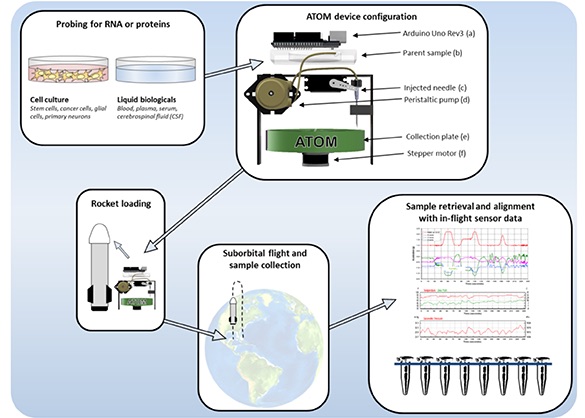Autonomous Sampling Technology for Biological Research During Suborbital Rocket Flight
PI: Marion Turnbull, Christine Mehner (Co-I), Mayo Clinic - Jacksonville
PI: Marion Turnbull, Christine Mehner (Co-I), Mayo Clinic - Jacksonville

- TA06 Human Health, Life Support and Habitation Systems
This technology is designed to fill the need for a biological sampling device that can capture second-by-second biological changes and link them to the different stages of suborbital rocket flight. This technology is hands-free and could detect even small changes in any biological sample during very short suborbital flight. It is customizable and has the potential for future development that includes solar-powered, on-board analysis and data transfer back to Earth. This experiment will determine if the device in a flight environment is capable of accurately collecting samples that can be later assessed in lab.
Currently at TRL 4, this technology has an anticipated TRL of 6-7 following a successful demonstration.
Biological research in low-Earth orbit
International Space Station experiments
Human exploration missions
Academic and industry experiments
Technology Details
-
Selection DateTechFlights19 (Oct 2019)
-
Program StatusActive
- 0 sRLV
Development Team
-
PIMarion Turnbull
-
PI Organization
-
Co-IChristine Mehner
-
Co-I Organization
-
SponsorNASA
-
PartnersUniversity of Central Florida

